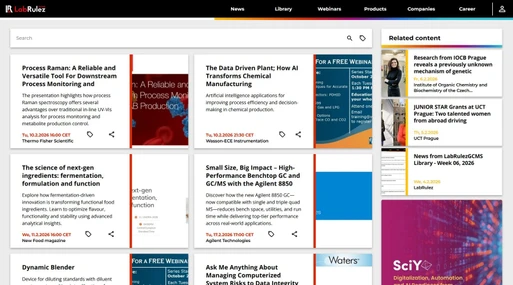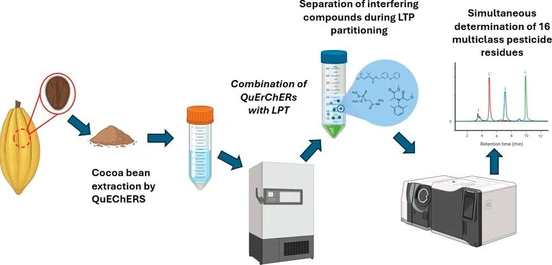Quantitative Analysis of Aliphatic Olefins in Fuels made from Plastic Waste by Comprehensive Two-Dimensional Gas Chromatography (Petr Vozka, MDCW 2023)

- Photo: MDCW: Quantitative Analysis of Aliphatic Olefins in Fuels made from Plastic Waste by Comprehensive Two-Dimensional Gas Chromatography (Petr Vozka, MDCW 2023)
- Video: LabRulez: Petr Vozka: Analysis of aliphatic olefins in fuels made from plastic waste by GCxGC (MDCW 2023)
- 🎤 Presenter: Petr Vozka (California State University, Los Angeles, Los Angeles, USA)
- 💾 Presentation in PDF
- 📁 LabRulezGCMS profile: Complex Chemical Composition Analysis Lab (C³AL)
💡 Book in your calendar: 15th Multidimensional Chromatography Workshop (MDCW) January 2024
-Workshop-Main-Banner_l.webp) 15th Multidimensional Chromatography (MDC) Workshop 2024
15th Multidimensional Chromatography (MDC) Workshop 2024
Abstract
Comprehensive two-dimensional gas chromatography (GC×GC) has become the state-of-the-art instrument for qualitative and quantitative analysis of volatile and semi-volatile complex mixtures and has emerged as a powerful separation tool for studying:
- environmental samples
- petroleum fractions
- persistent organic pollutants
- drugs
- and many more...
In the past 60 years, plastic waste has increased exponentially, while only 9% of plastic waste has been recycled and 12% incinerated. The remaining 79% (about 6 billion tons) of plastic waste has accumulated in landfills or oceans, where they slowly degrade and release microplastics and other toxic chemicals into the environment. To reduce the amount of plastic waste, conversion methods such as pyrolysis and hydrothermal processing are used to make oils, which can be further used to produce alternative fuels. These fuels have an alkene (olefin) content of up to 50 wt.%. Unfortunately, there are currently no methods for detailed quantitation of olefins in such concentrations.
 MDCW/Petr Vozka: Chemical conversion of plastic waste into fuels
MDCW/Petr Vozka: Chemical conversion of plastic waste into fuels
This talk aims to introduce a novel method applicable for the characterization and quantitation of aliphatic olefins in complex oils from plastic depolymerization, alternative, and petroleum-based fuels using GC×GC with a flame ionization detector. The talk also introduces teaching strategies for GC×GC technique inclusion to the laboratory portion of class syllabi.
💡 The Multidimensional Chromatography Workshop (MDCW) Profile LabRulezGCMS (EN)
💡 The Multidimensional Chromatography Workshop (MDCW) Profile LabRulezLCMS (EN)
 MDCW/Petr Vozka: GC×GC Training/Research Facility
MDCW/Petr Vozka: GC×GC Training/Research Facility
Presentation content
Comprehensive Two-Dimensional Gas Chromatography (GC×GC)
- Introdction
- GC×GC Chromatogram
- Diagram of a GC×GC Instrument
- How GC×GC is achieved
- Modulation
- GC×GC Chromatogram
- GC×GC Classification
- Quantitative results (some)
Quantitative Analysis of Aliphatic Olefins in Fuels made from Plastic Waste by GC×GC
- Detailed Analysis of Complex Chemical Mixtures
- Plastic Waste in Oceans
- Plastic Waste -Landfill
- The growing plastic waste problem
- Chemical conversion of plastic waste into fuels
- DMDS Derivatization
- Calculations
- Results
- Validation
- Methods -disadvantages
- Chromatogram –diesel-like sample pre-derivatization
- Chromatogram –diesel-like sample post-derivatization
- Future work
GC×GC in Academia/Teaching
- Course: Analytical Separations and Mass Spectrometry
 MDCW/Petr Vozka: Diagram of a GC×GC Instrument
MDCW/Petr Vozka: Diagram of a GC×GC Instrument
 MDCW/Petr Vozka: How GC×GC is achieved
MDCW/Petr Vozka: How GC×GC is achieved
 MDCW/Petr Vozka: GC×GC Classification
MDCW/Petr Vozka: GC×GC Classification
-Workshop-LOGO_s.webp)



